Alcohol withdrawal medications are essential for safely managing symptoms, preventing complications and supporting recovery after stopping heavy or prolonged drinking.
When you reduce or discontinue alcohol use, your body experiences significant changes in brain chemistry that can lead to uncomfortable and sometimes dangerous withdrawal symptoms.
This guide provides a clear overview of how clinicians assess withdrawal severity, choose appropriate medications and determine the safest treatment setting based on your risk factors.
Whether you’re seeking treatment for yourself or helping someone else, this resource outlines what to expect at each stage of care, so you can make informed decisions about alcohol withdrawal management and recovery planning.
Key Facts
- Alcohol withdrawal medications are critical for safely managing symptoms, preventing complications and supporting recovery after stopping heavy or prolonged drinking.
- Withdrawal can produce mild to life threatening symptoms, with urgent care required if you experience confusion, seizures, hallucinations, fever or unstable vital signs.
- Symptoms often follow a timeline: 6–24 hours (early signs), 24–48 hours (seizure risk) and 48–96 hours (highest risk for delirium tremens).
- Clinicians use tools like CIWA-Ar and PAWSS, along with ASAM criteria, to determine if you require inpatient vs. outpatient care and appropriate medication strategies.
- Benzodiazepines remain the first line treatment, with delivery methods such as symptom triggered dosing, fixed tapers or front loading tailored to patient needs.
- Adjunct medications (clonidine, gabapentin, phenobarbital, thiamine) may support recovery, while naltrexone after detox reduces cravings and relapse risk.
Nearby Alcohol Rehab Centers
Loading visitor information…
What is Alcohol Withdrawal?
Alcohol withdrawal occurs when your body and central nervous system react to the sudden absence of alcohol after heavy or prolonged use. This process can cause a range of symptoms that vary in intensity, making proper understanding and medical support essential for safety and recovery.
What It Is, Who’s at Risk and When to Seek Urgent Care
Your body becomes accustomed to alcohol’s depressant effects and reacts with hyperexcitability during withdrawal, leading to symptoms that can range from mild to life threatening. People with the highest risk have a history of severe withdrawal, prior seizures or delirium tremens (DTs).
People with a high alcohol tolerance, older adults and those with significant medical conditions are also more vulnerable. Early recognition and proper medical supervision are essential to manage symptoms safely and prevent serious complications during alcohol withdrawal.
Symptoms that indicate you require urgent or emergency attention include confusion, hallucinations, seizures, fever, unstable blood pressure or heart rate and persistent severe vomiting.
Symptom Timeline
Alcohol withdrawal can be life threatening without medical supervision. Early recognition of alcohol withdrawal symptoms and proper treatment are critical to preventing complications and ensure safe recovery.
- 6-24 hours: Early signs like tremors, anxiety, sweating and insomnia often appear.
- 24-48 hours: Symptoms intensify with worsening heart rate, blood pressure and possible seizures.
- 48-96 hours: Highest risk for DTs, marked disorientation, worsening heart rate, blood pressure and possible seizures.
Call A Treatment Provider
For a conversation about what treatment options are available to you.
Make a Call
Assessment & Care Setting: How Clinicians Decide and What to Expect
Clinicians use evidence based guidelines, often aligned with American Society of Addiction Medicine (ASAM) criteria, to determine whether your alcohol withdrawal care should occur in an inpatient or outpatient setting.
Inpatient vs. Outpatient Care
Inpatient treatment is recommended when you have a history of:
- Severe withdrawal
- Seizures or DTs
- Unstable housing
- Polysedative use
- Pregnancy
- Significant medical or psychiatric comorbidities
- Unreliable follow up
Outpatient care may be appropriate when you have mild to moderate symptoms, stable home support and access to daily medical monitoring.
Clinical Assessment Tools
Two commonly used tools guide decisions:
- CIWA-Ar (Clinical Institute Withdrawal Assessment for Alcohol): Measures withdrawal severity and informs symptom triggered medication dosing. Higher scores typically indicate that the level of inpatient care and monitoring should be escalated.
- PAWSS (Prediction of Alcohol Withdrawal Severity Scale): Screens patients before withdrawal begins to identify when you have high risk factors for complications, ensuring safer care placement and better outcomes.
First Line Alcohol Withdrawal Medications: Benzodiazepines
Benzodiazepines are the gold standard treatment for managing alcohol withdrawal syndrome (AWS), because they effectively control agitation, tremors, seizures and the risk of delirium tremors (DTs). The treatment approach varies depending on symptom severity, setting and comorbidities.
By calming overactive brain activity, these medications help stabilize you during withdrawal. Clinicians carefully select the appropriate medication, dosage and treatment strategy based on symptom severity, co occurring conditions, medical history and care setting to ensure safety and improve recovery outcomes.
How Treatment Is Delivered
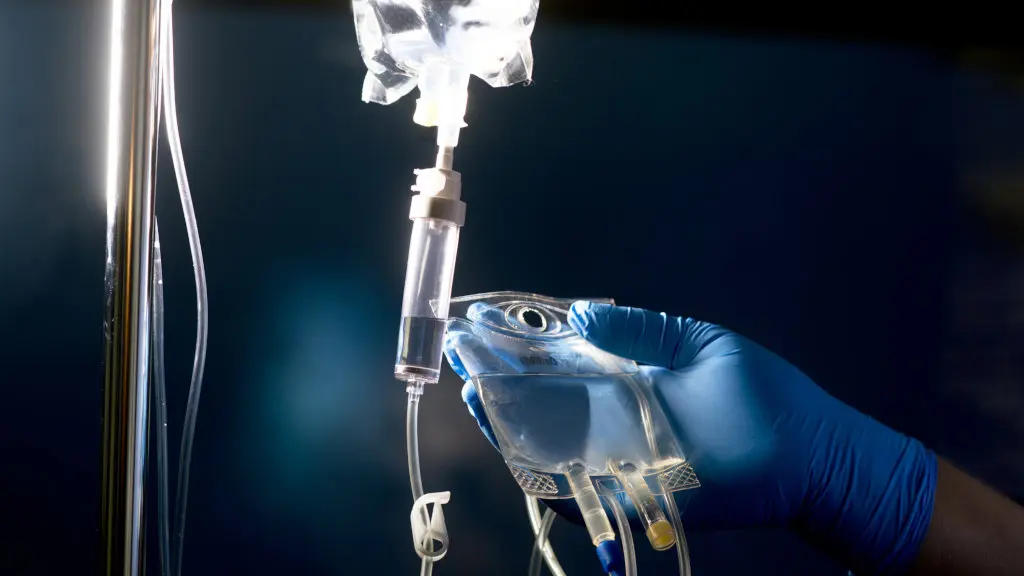
Alcohol withdrawal treatment can be delivered in several ways, with the approach tailored to symptom severity and care setting. Methods vary from symptom based dosing to scheduled tapers, front loading strategies and different routes of administration to ensure safety and effective recovery.
- Symptom Triggered Dosing: Preferred when close monitoring is possible. Medication is given only when symptoms emerge based on CIWA-Ar scores, reducing total drug exposure and recovery time.
- Fixed Tapers: Scheduled doses gradually decrease over several days. This is used when frequent monitoring isn’t feasible, such as in outpatient settings.
- Front Loading: High initial doses for long acting benzodiazepines rapidly stabilize severe withdrawal and prevent complications in high risk patients.
- Routes of Administration: Oral (PO) is preferred for stable patients, while IV or IM dosing is reserved for severe agitation, vomiting or poor absorption.
Benzodiazepine selection depends on withdrawal severity, comorbidities and monitoring capacity. Choosing the right agent and dosing strategy improves safely, reduces complications, and supports a smoother recovery.
Diazepam (Valium)
- Advantages: Rapid onset and long half life make diazepam ideal for front loading protocols and seizure prevention.
- Cautions: Use lower doses in hepatic impairment and older adults to avoid oversedation or respiratory depression.
Chlordiazepoxide (Librium)
- Advantages: A long acting option commonly used in outpatient tapers. It provides smoother withdrawal with fewer breakthrough symptoms.
- Cautions: Heavily metabolized by the liver. Dose adjustments are needed for liver dysfunction. You must avoid alcohol and be warned about operating machinery.
Lorazepam (Ativan)
- Advantages: Intermediate half life and reliable IM/IV absorption make it useful for symptom triggered protocols and when you have nausea or vomiting.
- Cautions: Preferred in older adults and those with liver disease since it bypasses extensive hepatic metabolism.
Clonazepam (Klonopin)
- Advantages: Can help reduce anxiety and tremor when other benzodiazepines are contraindicated or are insufficient.
- Cautions: Less studied as a first line AWS treatment. It’s generally used as an adjunct or when standard agents are contraindicated. Monitor closely for cumulative sedation.
Adjuncts & Alternatives
Adjunctive medications can help manage alcohol withdrawal symptoms but are not substitutes for benzodiazepines, which remain the first line treatment. These drugs are used selectively to target specific symptoms, reduce overall medication needs and manage complications when appropriate.
In certain cases, they also improve your comfort, support stabilization and address co-occurring mental health conditions or underlying medical issues during the withdrawal process. Adjunctive therapies should be customized to your needs and used only under medical supervision to optimize safety and outcomes.
Clonidine
Clonidine helps ease autonomic symptoms such as rapid heart rate, hypertension and sweating. It is used only as an adjunct therapy in your alcohol withdrawal and not independently, since it does not prevent seizures or DTs. Your blood pressure should be monitored closely because of the risk of hypertension.
Gabapentin
Gabapentin may be considered if you have mild alcohol withdrawal symptoms or to manage sleep disturbance and anxiety during your early recovery. In some cases, it can reduce benzodiazepine requirements.
However, there is a potential for misuse, and it can cause addictive sedation, especially when combined with alcohol or other depressants. Your renal function should be assessed before treatment.
Phenobarbital
Phenobarbital, a barbiturate, is reserved for severe or benzodiazepine refractory withdrawal, often in ED or ICU settings under close supervision. It has a narrow therapeutic window and increases the risk of respiratory depression. Using phenobarbital requires continuous monitoring by experienced clinicians.
Thiamine (Vitamin B1)
Thiamine is essential for preventing Wernicke’s encephalopathy(a neurological emergency caused by lack of thiamine [vitamin B1]), especially if you have malnutrition, liver disease or homelessness.
It must be administered before glucose and given parenterally in moderate-to-severe withdrawal or if you have poor nutritional status. After IV administration, it can be followed by oral maintenance therapy.
THC (Cannabis)
Although this is commonly used to self medicate for sleep or anxiety THC is not recommended during withdrawal. Evidence is insufficient and it may worsen cognition, anxiety and may have interactions with sedatives. Safer recovery focused alternatives should be discussed instead.
Safety, Interactions & Special Populations
Alcohol withdrawal management requires careful attention to your medication safety and individualized risk factors.
Clinicians must assess your medical history; substance use patterns and co occurring conditions to select the appropriate medications and dosages. These medications can interact with other drugs you are taking, which increases your risk of adverse effects.
Personalized treatment plans and continuous monitoring improve safety, reduce complications and ensure better outcomes during withdrawal management, especially for vulnerable populations.
High Risk Drug Combinations
Avoid combining benzodiazepines with alcohol, opioids or other sedatives, as they can cause severe respiratory depression, coma or death. You and your clinician should review medication lists and substance use before prescribing.
Clinicians typically start with lower doses and titrate slowly in older adults because of an increased sensitivity to drugs and the risk of falls. Lorazepam is preferred if you have hepatic impairment since it relies less on liver metabolism. A safe home environment and reliable supervision are also critical for outpatient care.
Pregnancy, Postpartum & Co Occurring Substance Use
If you are pregnant or postpartum your care should be managed in higher acuity settings with OB collaboration for fetal monitoring and breastfeeding safety.
When there’s co use of opioids, stimulants or other sedatives, clinicians should integrate overdose prevention strategies, provide naloxone education and coordinate comprehensive treatment plans for your and your infant’s safety.
After Alcohol Withdrawal: Medications for Alcohol Use Disorder

After the withdrawal phase, certain medications can support your long term recovery by reducing cravings and the risk of relapse. Naltrexone is one of the most prescribed options, helping to block the rewarding effects of alcohol and promote sustained sobriety.
Naltrexone (Role After Detox; Oral vs, XR)
Naltrexone is a first line option for relapse prevention after completing alcohol withdrawal.
It works by reducing your cravings and lowering the risk of heavy drinking days. Treatment should begin only after acute withdrawal resolves and opioid free status is confirmed to avoid precipitated withdrawal.
Two forms are available:
- Oral naltrexone (daily dosing) offers flexibility and is easier to discontinue if side effects occur.
- Extended release (XR) naltrexone is given monthly by injection to improve adherence in patients struggling with daily compliance.
Before starting therapy, clinicians should check your liver enzymes, discuss opioid blockage effects and provide education on integrating naltrexone with counseling, peer support and behavioral therapies for best outcomes.
FAQs
Home detox is not recommended when you have moderate to severe alcohol withdrawal symptoms or a high risk history (e.g. seizures, DTs, unstable vitals or liver disease).
Complications can be life threatening without supervision. If detoxing at home, safety improves with a clinical assessment, daily monitoring, home support and a clear escalation plan in case symptoms worsen.
Chlordiazepoxide (Librium) and diazepam (Valium) are long acting benzodiazepines.
Diazepam acts faster, making it ideal for front loading protocols, while Librium is commonly used in outpatient tapers. When you have liver disease, lorazepam may be a safer alternative.
No, gabapentin may help with mild withdrawal, anxiety and sleep disturbances, but it’s not reliable for a seizure or DTs prevention. It should only be used under a clinician’s supervision and monitor for sedation or misuse risk.
Giving glucose first can trigger Wernicke’s encephalopathy (a neurological emergency caused by lack of thiamine [vitamin B1]) in thiamine deficient patients. Thiamine protects the brain and is given before glucose, often by IV in high-risk patients.
Not recommended. THC may worsen anxiety, paranoia and sedation risks when combined with other medications. Safer, non sedative sleep strategies should be discussed with a clinician.
Lorazepam is preferred for AWS in hepatic impairment, while long acting benzodiazepines should be used cautiously. Coordinate care with hepatology and monitor closely for over sedation.
Find Treatment & Medications for Alcohol Withdrawal Near You
Finding the right treatment center for alcohol withdrawal and recovery can feel overwhelming, but help is available.
Use a trusted directory where you can search and compare treatment centers based on your specific needs. You can filter options by location, level of care, insurance coverage and special programs to find a facility that matches your situation.
If you’re unsure where to begin, support is just a phone call away. Call
800-985-8516
( Sponsored Helpline )
today to speak with someone who can explain your treatment options, answer your questions and guide you toward safe, effective care.
Starting treatment is an important step toward recovery. Whether you need detox, inpatient rehab, outpatient care or specialized programs, having the right resources makes the process easier and more personalized to your needs.
Top Rated Centers for Alcohol Addiction Treatment
| Name / Address / Rating | Description | Treatments / Payments / Programs | Review / Contact | Images | |
|---|---|---|---|---|---|
Avenues Recovery Center at ClarksvilleAd This is an ad and Avenues Recovery Center at Clarksville is a paid advertiser. Paid advertisers may be listed first in search results. This ad may contain content provided by the advertiser. Rehab.com does not verify ad content or any reviews that are displayed. Learn More Clarksville, IN | Avenues Recovery Center in Clarksville, Indiana, is an inpatient drug and alcohol detox and rehab center. They strive to provide individuals receiving treatment with a loving environment and attentive medical care. You’ll be away from toxic environments and triggers and have the opportunity to focus on developing life skills that will support you | Treatments Programs Payment Options | View Website (930) 203-1947 | I highly recommend Avenues. The staff is absolutely amazing and very helpful. They treat you like family. Star, Jenny, Tarah, Paige, Monica, and both Amanda’s really helped me through.
Dana Key
3 weeks ago
It was a great experience great people thank you .
Jessica Fulkerson
3 weeks ago
This facility has been life saving. I am so grateful to be able to have gotten the help they had offered.
Nikki
3 weeks ago
| 
4 
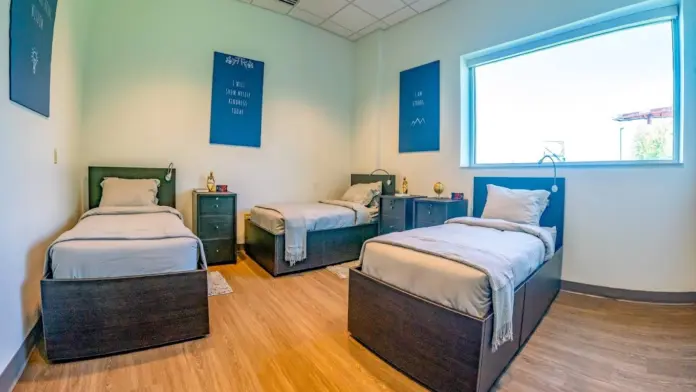
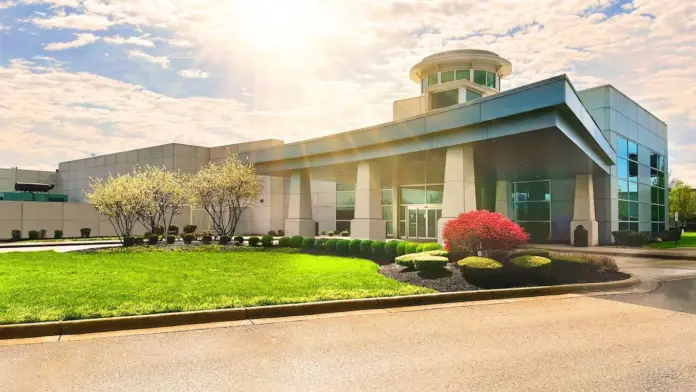
|
1
Top 10 Rehab in AZ
Rehab Score
Our Rehab Score is designed to make it easier for you to find the best treatment centers. We combine overall ratings with recent feedback to create a score that reflects a center’s quality right now.
8.90 / 10 | Soberman’s Estate, located in Cave Creek, Arizona, is an alcohol and drug rehab center that provides addiction treatment services to adult men, professionals, and public figures. They are a discrete, luxury rehab for individuals aged 30 to 80 years old. This location caps their treatment center at ten men at a time. As one of leading inpatient re | Treatments Programs Payment Options | Soberman’s Estate was everything I needed for my recovery. The staff, the program, physical activity and culinary experience were top notch and essential. The program is well designed and worked better than I expected. The staff is remarkable – professional, considerate and genuinely caring. My time there and being removed from alcohol for five weeks was everything I needed to remove my craving for alcohol. Soberman has changed my life in ways I never could have imagined. I feel confident, secure and grateful for my new life. I have reconnected with my family and friends. Thank you Soberman.
George B.
3 months ago
Yes, very professional staff, treatment, therapist, chefs were good! even the home cook did the best she could, and loved the horses of Course! Saturday morning hiking was fun to explore the trails of the nearby mountain area!
John E Williams
4 months ago
I had a great experience overall and would recommend it to anyone wanted to jump start their sobriety!!
Kevin Crawford
4 months ago
| 
5 5 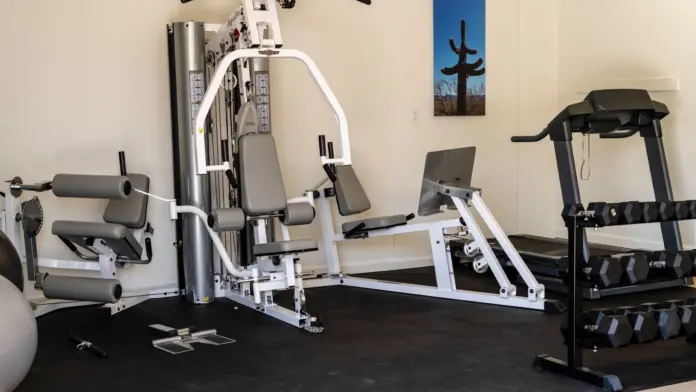



| |
1
Top 10 Rehab in CA
Rehab Score
Our Rehab Score is designed to make it easier for you to find the best treatment centers. We combine overall ratings with recent feedback to create a score that reflects a center’s quality right now.
8.81 / 10 | All In Solutions Detox in Simi Valley is one of the best ranked inpatient detox facilities in California providing safe, medically supervised care for individuals beginning their recovery from drug or alcohol addiction. As part of the All In Solutions Behavioral Health network, this facility serves as the first step in a full continuum of care. Cli | Treatments Programs Payment Options | I had an amazing experience and really enjoyed getting to know the staff and my fellow peers in groups. The staff really cares about your recovery and you will feel better every day. The food is good too lol.
Desiree
1 week ago
I loved it here it was a great place to be would definitely recommend to anyone wanting to get sober thank yall!
Kyle Robinson
1 week ago
i owe it all to this place. 100% recommend if you’re serious about your recovery. thanks AIS ❤️
maddy chacos
1 week ago
| 
5 5 

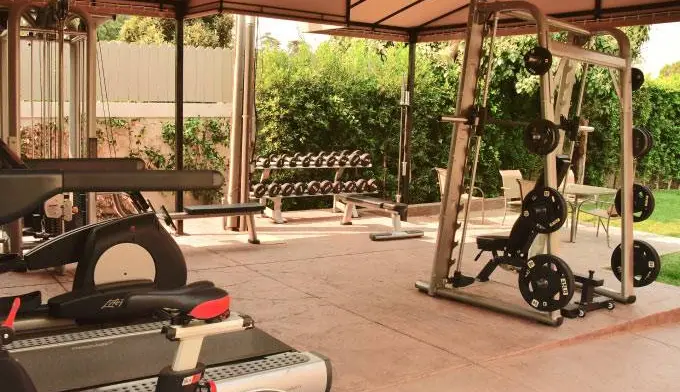

| |
1
Top 10 Rehab in TX
Rehab Score
Our Rehab Score is designed to make it easier for you to find the best treatment centers. We combine overall ratings with recent feedback to create a score that reflects a center’s quality right now.
8.80 / 10 | Symetria – Hurst Outpatient Rehab and Suboxone Clinic in Hurst, Texas, is a private drug rehabilitation clinic for adults. One of the best outpatient rehab centers in Texas, Symetria offers various withdrawal medications to help clients get started with their recovery journey. You’ll also have access to treatments such as the intensive outp | Treatments Programs Payment Options | Symetria is unbelievably amazing!!! The Hurst staff is phenomenal!!! I can’t imagine that another location has a better staff. A special shout out to Deborah, Benjamin, and Samantha of course. You all are doing amazing, amazing, selfless work. You all are very special to so many!!!
Vernon Godsey III
3 months ago
Huge shout out to the team at symetria who make me feel like family I appreciate everything they do and huge shout out to Osagie for helping me! He is AWESOME!!! I love you symetria❤️❤️❤️
Chloe Roseman
4 months ago
BEST PLACE EVER. I have tried various other doctors/clinics and none of them even begin to compare to this one. The staff here is absolutely amazing. I can’t even make a single complaint. Dr Son is the best as well. He explains everything and you truly feel like he understands you. I can proudly say this, this place saved my life. If you or someone you know needs help getting off opiates do it right the first time and come here. You won’t be disappointed. If you are specifically struggling with fentanyl please don’t waste your time with other ways. I have tried 6 other methods from lazer therapy to having the earpiece to suboxone. Methadone is the key to our current fentanyl crisis. This clinic makes recovery possible again!
Mason
4 months ago
| 
5 5 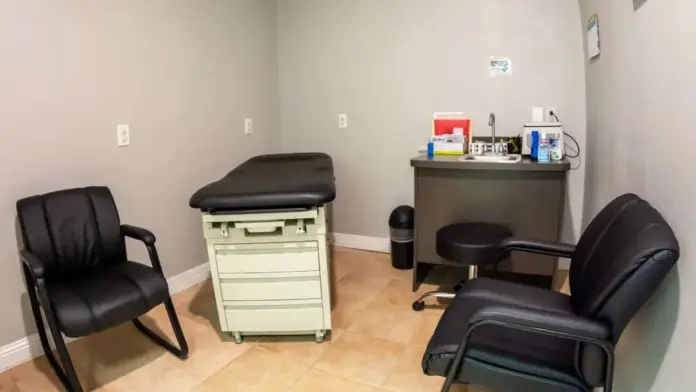
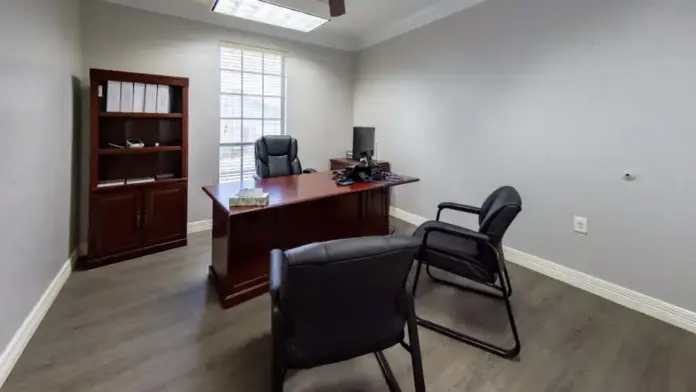

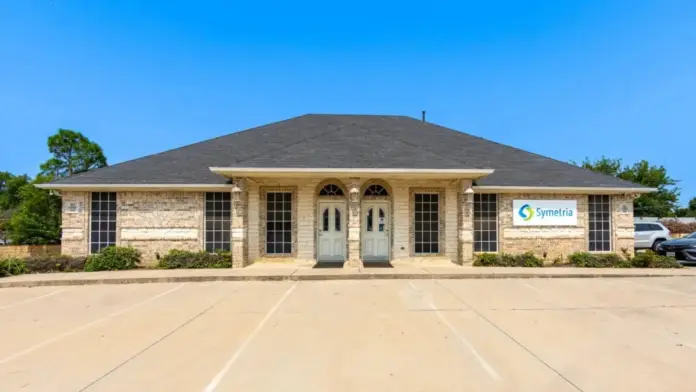
| |
Boca Recovery Center – Bloomington Alcohol & Drug RehabAd This is an ad and Boca Recovery Center – Bloomington Alcohol & Drug Rehab is a paid advertiser. Paid advertisers may be listed first in search results. This ad may contain content provided by the advertiser. Rehab.com does not verify ad content or any reviews that are displayed. Learn More Bloomington, IN | The Boca Recovery Center is a luxury alcohol and drug rehab center for adults in Bloomington, Indiana. They specialize in cutting edge addiction treatment provided in a residential setting. One unique part of this alcohol and drug rehab in Indiana is the peaceful, secluded setting. If recovering in a clinical hospital setting doesn’t sound very a | Treatments Programs Payment Options | View Website (930) 203-1400 | This place damn near saved my life. Staff is amazing and care almost on a personal level. Nurses are knowledgeable and groups are interactive informative and inclusive.
Edit*
Shout out to Beth, Nora and Carter! Made a great impact on my recovery!
V Montez
1 week ago
I learned a lot from this place. They’re really good at bringing everything out that you need to say in under to recovery. Thanks for everything. You guys have changed my life
Megan Tipton
2 weeks ago
Boca recovery was a magical experience during a very difficult time that will always hold a special place in my heart. From top to bottom, the support of staff is second to none.
Tyler and Carrie, Carter, Alexx, Ashley, Brooke, Michelle, Meagan, and the rest of the techs are phenomenal. My therapist January opened my eyes to perspectives I had been missing my entire life and Justin the case manager worked tirelessly from the start all the way until his wife gave birth on my last day to make sure I was set up for success.
The nurses are amazing and the medical attention someone needs during this portion of their recovery is 110% offered around the clock.
The place has everything you need from a gym to recreational activities, spacious beds with luxury amenities. And one cannot go without mentioning the chef, Tim. You won’t find better “rehab food” and conversation.
I owe a thank you to the director John for his efforts to get me into a great program after my stay was over.
To anyone struggling with with mental health and/or addiction, I cannot shout praises loud enough for what this program has to offer each and every client that walks through those doors.
If you want a way out, there’s no better place to check in.
Alex K
1 month ago
| 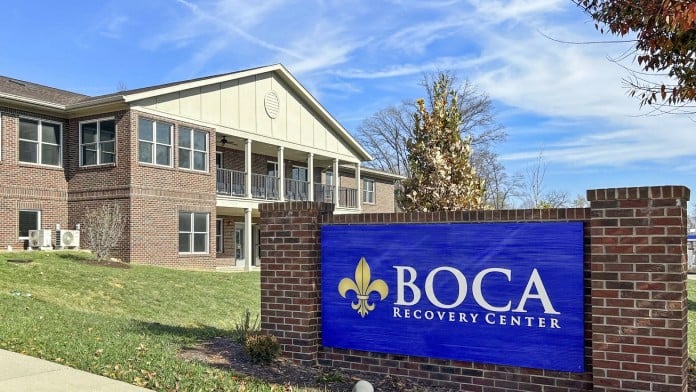
6 6 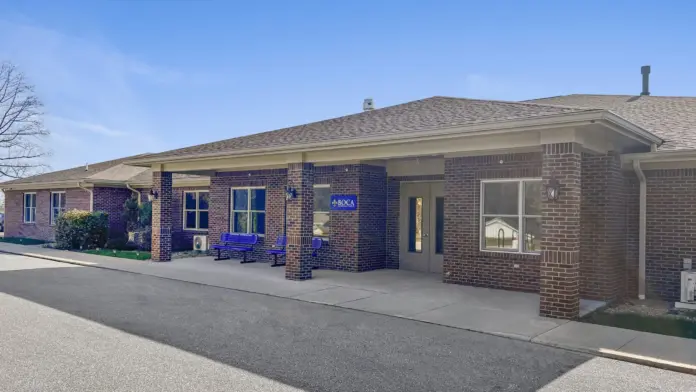
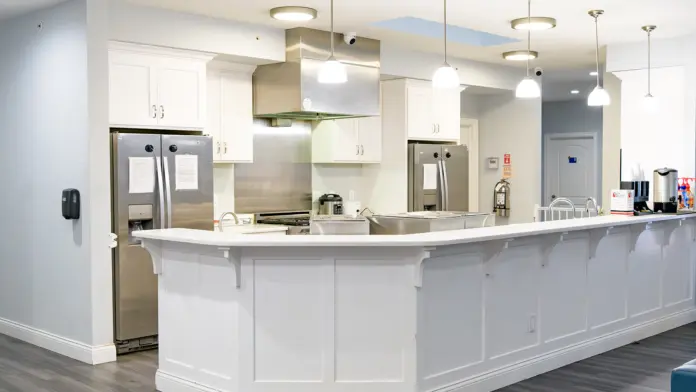
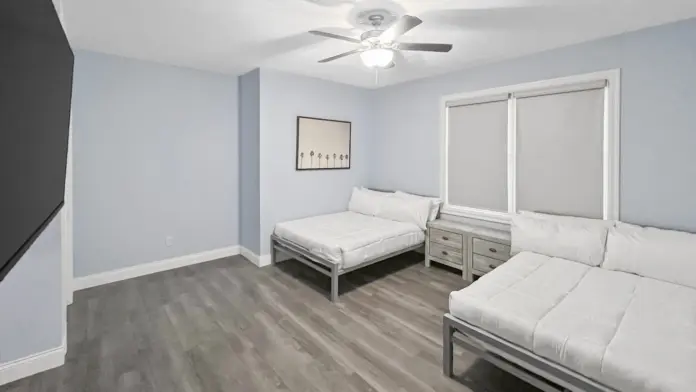
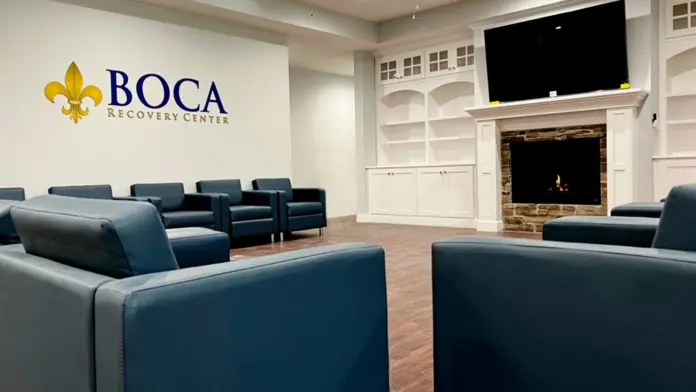
|
1
Top 10 Rehab in FL
Rehab Score
Our Rehab Score is designed to make it easier for you to find the best treatment centers. We combine overall ratings with recent feedback to create a score that reflects a center’s quality right now.
8.80 / 10 | All In Solutions Counseling Center is a mental health center and addiction treatment program in Boynton Beach, Florida. They provide a partial hospitalization program, an intensive outpatient program (IOP), an outpatient program, medication-assisted treatment, and mental health care for adults with substance use disorder. All In Solutions Counseli | Treatments Programs Payment Options | The staff were amazing. Can really tell the people care about you. Amazing people who have lived through the experience and recovery they are trying to show all of us. Can’t recommend it enough.
Tyler
1 week ago
such a good facility. love all the staff! nicole is an awesome therapist!
Sydney Shaw
2 weeks ago
All In Solutions received me with open arms for the second time. The staff make sure you receive a high quality care treatment. I’m grateful for the love and care . God continue to bless everyone.Thank you for you do .
Jianil Richiez
3 weeks ago
| 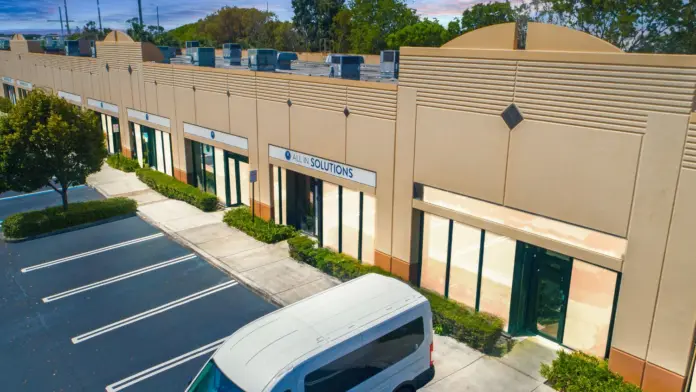
4 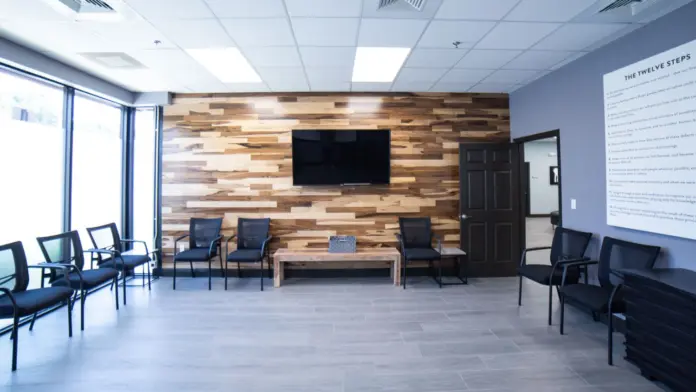

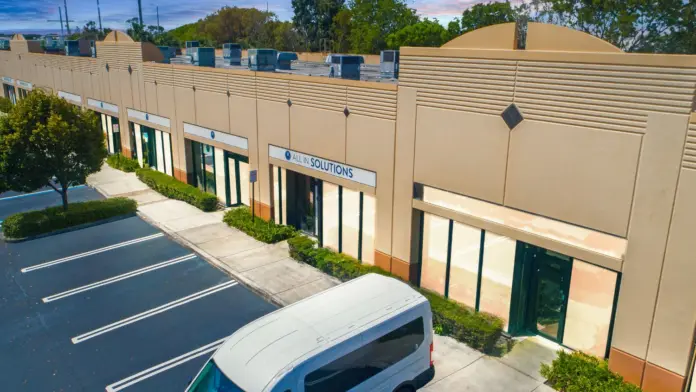
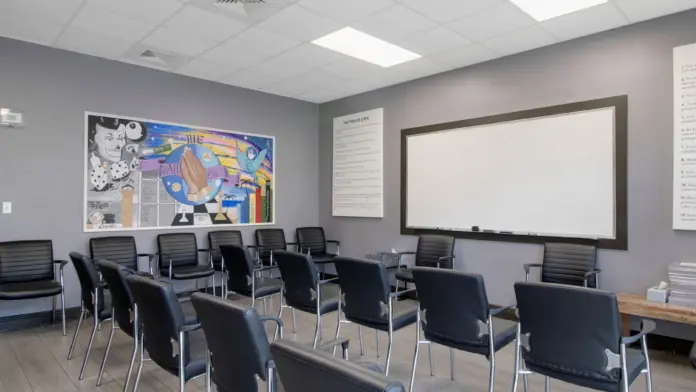
| |
1
Top 10 Rehab in NJ
Rehab Score
Our Rehab Score is designed to make it easier for you to find the best treatment centers. We combine overall ratings with recent feedback to create a score that reflects a center’s quality right now.
8.80 / 10 | Boca Recovery Center – Galloway is a drug and alcohol rehab in Galloway, NJ. They provide inpatient addiction treatment and medical detox. Boca Recovery’s New Jersey Drug & Alcohol Rehab, located in Galloway, New Jersey offers residential addiction treatment, medical detox, and medication-assisted treatment in an immersive treatment s | Treatments Programs Payment Options | My sobriety journey started at Boca. The staff members including Miss Tracey, Hannah and Kevin their alumni coordinator have completely flipped the trajectory of my life. I was immediately taken in with open caring arms and they made my detox process as comfortable as possible. During my stay, Joe was extremely helpful in helping me slowly gain my appetite back and start to feel stronger and was so attentive to my nutritional health. Nurse Patrick was so kind to me during my intake and Kevin still reaches out to me very often to check in and is so helpful in my recovery process. I owe gaining my life, my strength and my family back to Boca and I am eternally grateful❤️
Rianna Dean
1 month ago
Great facility with even greater staff. One of the best rehab/detox in South, NJ.
Donna Kratzer
1 month ago
Very comfortable stay
Will
1 month ago
| 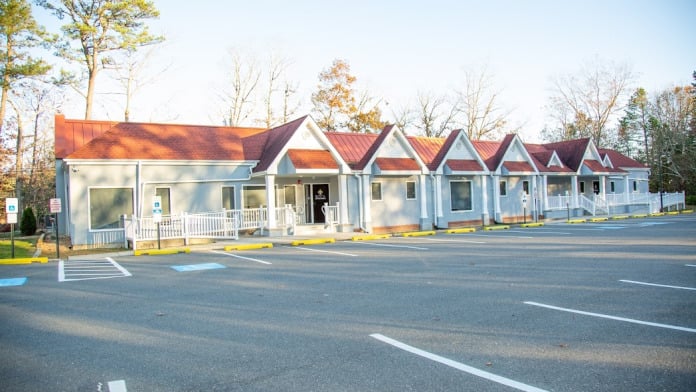
7 7 
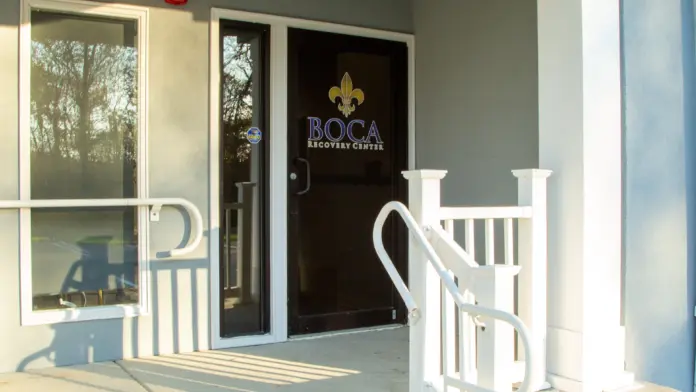
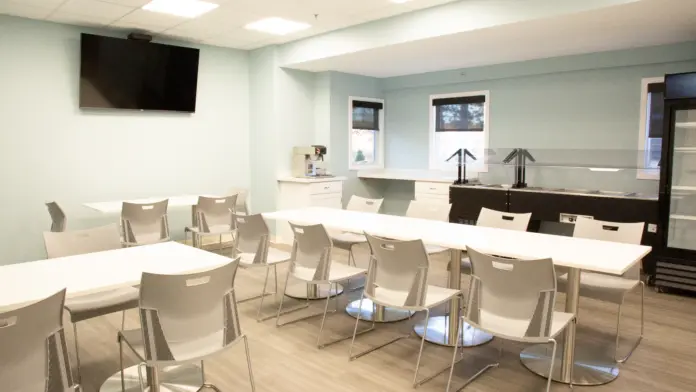

| |
1
Top 10 Rehab in TN
Rehab Score
Our Rehab Score is designed to make it easier for you to find the best treatment centers. We combine overall ratings with recent feedback to create a score that reflects a center’s quality right now.
8.77 / 10 | If you’re looking for a Christian-based men’s drug rehab center, S2L Recovery in Woodbury, Tennessee, might be the place for you or your loved one. Located at the top of Short Mountain, and overlooking the green hills of Middle Tennessee, this residential and detox clinic boasts a one-to-one staff/patient ratio so there’ll always be someone t | Treatments Programs Payment Options | Coming from Canada, I was hesitant. But God knew that S2L was exactly where I needed to be. At 64 years of age, I was able to discover my true identity, purpose, and mission in Christ. They help you in trying to get clean and sober for sure. But what S2L and the staff are all about is the Gospel of Jesus Christ. That’s why it is so successful.
TIM TANNER
4 months ago
I’ve had the privilege of seeing the life-changing impact this ministry has on countless men & I can’t recommend it highly enough! God has His Hand on this ministry & I’m honored to see the Lord work in these men!
Hunter Stanfield
4 months ago
Come here with a open mind and heart. It can and WILL change your life in all ways. Trust the process and trust God! Could go on and on about how amazing this place, I’ll forever be grateful!
Trevor Woodard
4 months ago
| 
6 6 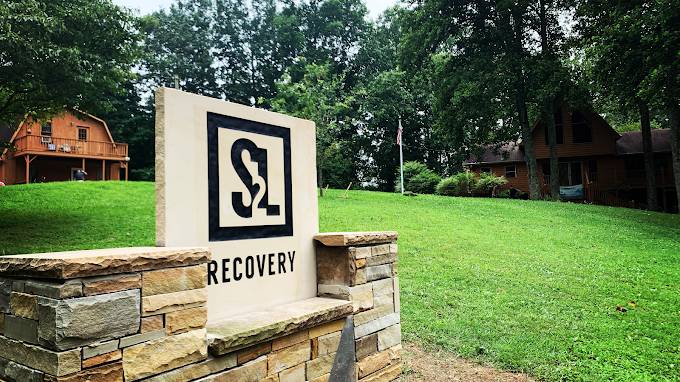



| |
1
Top 10 Rehab in PA
Rehab Score
Our Rehab Score is designed to make it easier for you to find the best treatment centers. We combine overall ratings with recent feedback to create a score that reflects a center’s quality right now.
8.76 / 10 | The Steps To Recovery addiction treatment center is situated in Levittown, Pennsylvania. At this drug rehab center, patients can expect to engage in a unique treatment approach that focuses on helping individuals recover through authenticity, intimacy, community connection, and transparency. Steps to Recovery offers a serene and private environ | Treatments Programs Payment Options | Good place, great housing
Nicole Rivera
2 months ago
Amazing support network and great staff lovely time with my stay at STR buck
William Perry
3 months ago
My experience at Steps to Recovery has been great for the most part, the people and the environment are very welcoming and comforting. I have had some issues that have come up, but they usually get resolved. My only main gripe is with some of the other clients at the community living house fail to clean up after themselves, and some do not know self control. But, the staff here is very professional and easy to talk to. I find that the opportunities here for my recovery journey are pretty good, although I’d like access to more holistic therapy resources. I’ve actually personally facilitated a Dharma meeting and will facilitate more in the future. I appreciate my time here at STR and am excited for the future with them.
Jerry Davis
3 months ago
| 
6 6 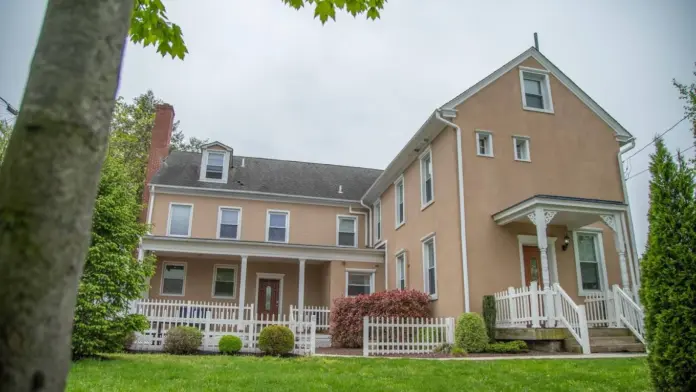
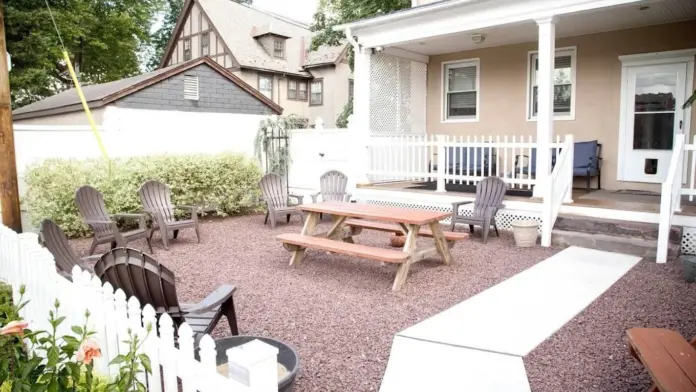


| |
2
Top 10 Rehab in CA
Rehab Score
Our Rehab Score is designed to make it easier for you to find the best treatment centers. We combine overall ratings with recent feedback to create a score that reflects a center’s quality right now.
8.76 / 10 | Located in Watsonville, California, Elevate Addiction Services provides alcohol and drug rehab services to men and women suffering from addiction. Their levels of care include detox, inpatient treatment, and outpatient treatment. One of the best ranked Outpatient treatment centers in California, Elevate Addiction Services provides a wide continuum | Treatments Programs Payment Options | Elevate was an awesome experience. I learned a lot about myself and I now have the tools for long term sobriety
Colin Yan
6 days ago
Elevate has been a life changing experience. The staff is very professional and compassionate. The community of clients is very special and the morale is unlike anywhere else. I would highly highly recommend Elevate Addiction Services to anyone struggling with addiction. From detox to the very end of your stay you are well taken care of.
Travis Boe
1 week ago
I have been through other treatment facilities in the past; but Elevate has by far been the best experience I could’ve hoped for. Recovery isn’t just the ability to abstain from substances, but the capability of transforming from within. Not only has Elevate help me appreciate the things within me but everything around me as well. Thank you, Elevate for changing the trajectory of my life and my marriage!!
Michael Amodeo
1 month ago
| 
5 5 



|





